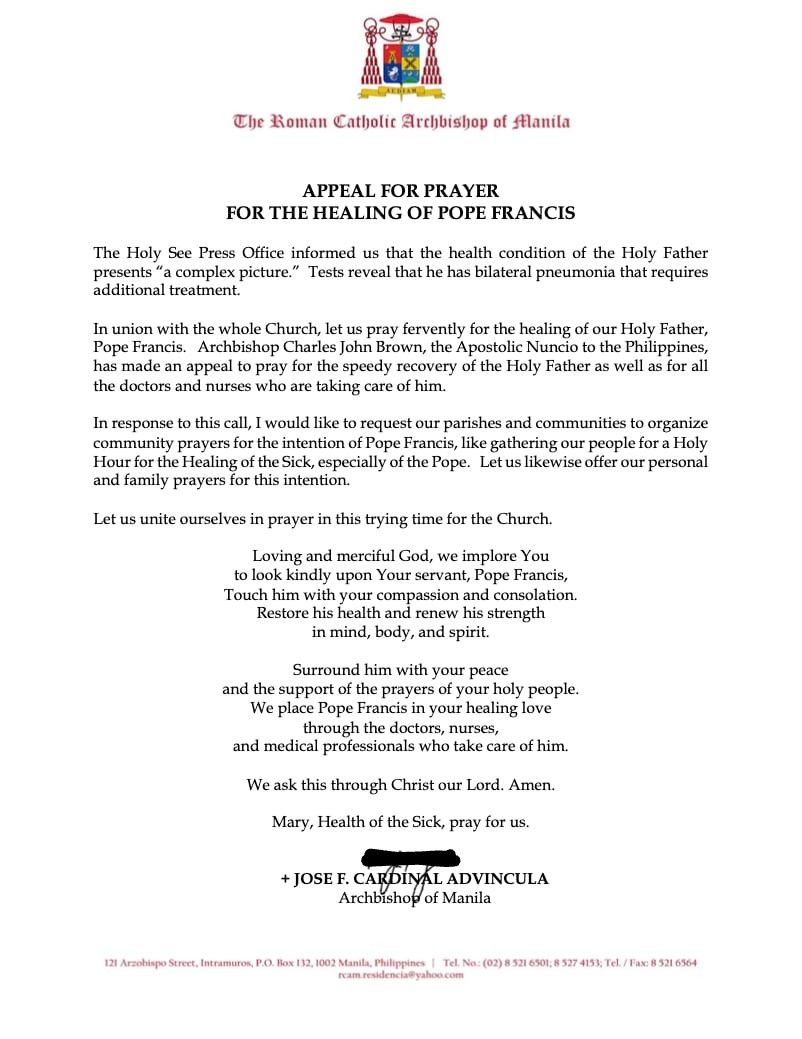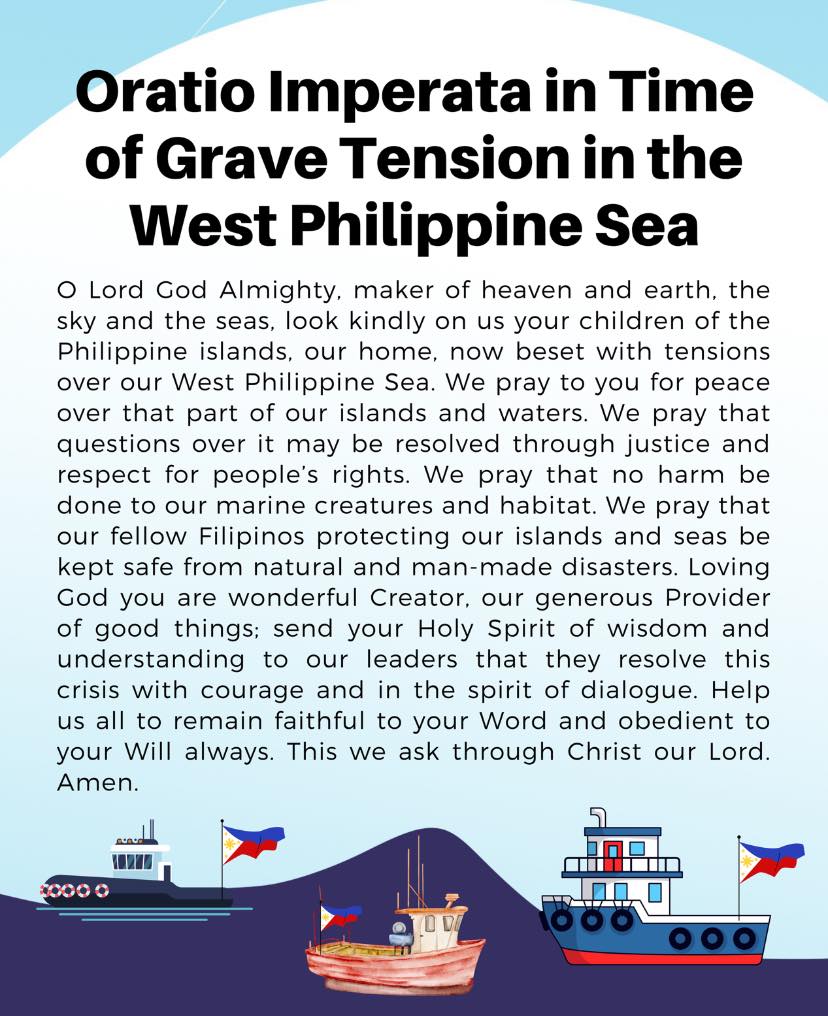On the return flight to the Vatican from his pastoral visit to the Philippines, Pope Francis in a response to journalists’ queries accompanying him on the same flight, mentioned a statement that stirred the long-standing controversy between orthodox and progressive perspectives within the Church on birth control, contraception and responsible parenting.
How small or large should a family be?
BACK TO BASICS
The Gospels have always been testaments to love, the witness that God himself lived among us to express that love. The Church will always be an institution that seeks to do its best to express that same love. That is why it is important that we as members of the Church, should always have recourse to the Spirit of love that animated it.
We cannot be disconnected from the Spirit, because human as we are, we may err in the way we love, we may confuse the love that shone brilliantly from the cross – with self-love. It is therefore important to pray ceaselessly, because it is in the discipline of prayer that we realize that God is not merely an idea we have chosen to believe to exist, but a living force who can love and can be loved.
he Church has always urged us to love openly and to offer ourselves for it; there is no better gift that we can bring to our Father in heaven, than to give back in love what he has given to us when he created us.
The inner struggle between divine selfless love and human self-love is at the heart of the decisions necessary to raising a family.
THE CHRISTIAN FAMILY
The family is the school of love. We know future generations are developed within the social setting of a family, and it is in this nurturing where love is first felt, where it is first experienced and understood. It is the undying love of a child’s parents or its caregivers that becomes the model of the love that it brings into maturity.
It is an abomination therefore to think of redefining what families should be – we should be cautious into believing that a family is a place where to nurture personal ambitions. A drive to create our own personal empires, and build our own castles from our families, as if they were our own personal fiefdoms, will stifle and extinguish the beautiful innocence of love. Perhaps our overpowering drive to achieve success at the expense of love may even be the root of all social evil.
A true Christian family, trying its best to spread love, will always find its way back to the Gospels. It must constantly recollect itself in prayer, and commune with the Spirit that holds it together. A family gains strength from the source of its special bonds, enabling it to endure the darkness of earthly life. It must continue to give itself light. It is perhaps the only way we are assured of a generation of humanity that knows how to give and receive selflessly, thus preserving the peace for the ages.
SMALL OR LARGE?
Must a family be small or large?
The providence of God assures us that he created enough for everybody. If we are in a situation when a few have much more than enough, and a great many people don’t even have barely enough to survive, then we must ponder hard why we brought ourselves to this inequitable situation.
If we are driven by self-love, choosing to pursue our dreams at the expense of everything else, and if we further justify our accumulation of wealth on the premise that we deserve to have much more than someone else, then we can realize why most riches end up with only so few.
No, the providence of God assures us that everybody will and should have their share of his bounty. The creation of every person by God is itself the testament that he or she was meant by God to be someone. Therefore it follows that there must always be a proportionate share of his wealth, so that each person can grow to become what God meant him or her to be – unless somebody else unjustly claims that share for himself in the name of “fairness” or “being deserving of it”.
A large family will always be a blessing. Parents of large families will be given that rare opportunity to give love to more people, to contribute more to that future generation of lovers – it is a definite assurance of the continuity of creation. There must never be a doubt that God will not provide for such a noble purpose.
But the Church will always reserve the judgment to those whom God has bound in divine guidance – parents must make well-formed and responsible decisions on how many children they are willing or capable of loving. It is a decision based on one’s assessment of the capacity to love. If parents choose to have one or ten children based on this ‘responsible’ assessment, then who am I to judge why a couple should have more, or should had less?
The problem may lie in how such decisions are made in the first place. Any decision made in the context of achieving personal ambition, attaining comfort or satisfying self-love, or even out of total negligence or absence of love; any decision that is inconsiderate of God’s purpose or not trusting in God’s providence; any decision made out only of human frivolity, becomes irresponsible. Any decision that does not acknowledge the love of God, that is not the fullest expression of loving God and others, becomes irresponsible.
Thus, deciding to have a small family because of the fear of immense sacrifice, loss of comfort, and foregoing of personal ambitions, may be just as worse as allowing oneself to have a large family and being totally unconcerned for their future.
PRAYER
Let us pray for would-be parents to make the right decisions to love. May God always guide them towards the light!
Br. Jess Matias, ofs is a professed member of the Secular Franciscan Order. He is currently the Coordinator of the Padre Prio Prayer Groups. He has written books on Franciscan Prayers and is the author of Mahal din Kita, Panginoon! (Claretian Publications, 2013).











